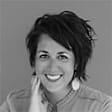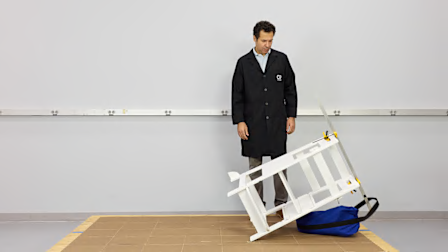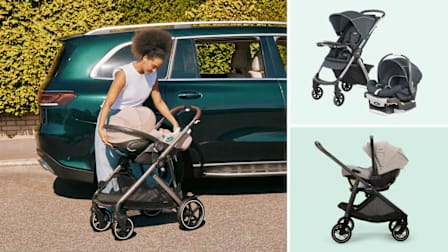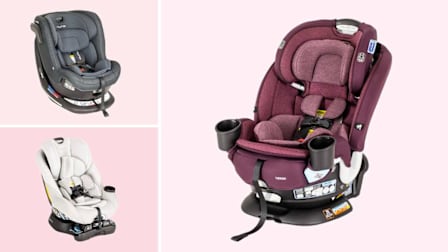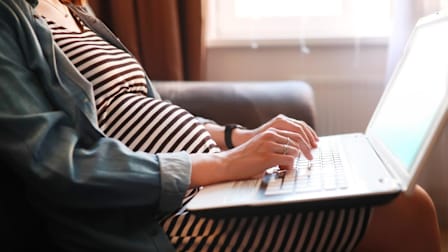5 Dangerous Infant Sleep Products That Are Still Easy to Find Online
And the red flags parents should watch out for while shopping
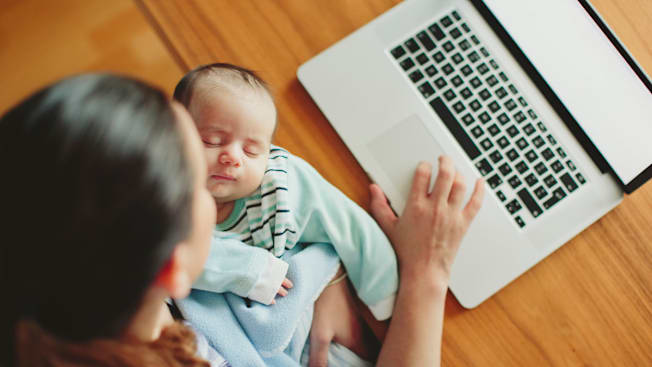
“Isn’t the DockATot not safe for sleeping?” a friend with a newborn texted me. She followed up with multiple pictures of knockoff baby loungers, similar to the DockATot, offered by different third-party sellers on Amazon. “But I’m confused . . . these are on Amazon,” she added.
My friend isn’t the only new parent who’s confused. Many parents assume that a product must be proven safe before being sold online in the U.S. But sadly, this isn’t the case—even for baby products.
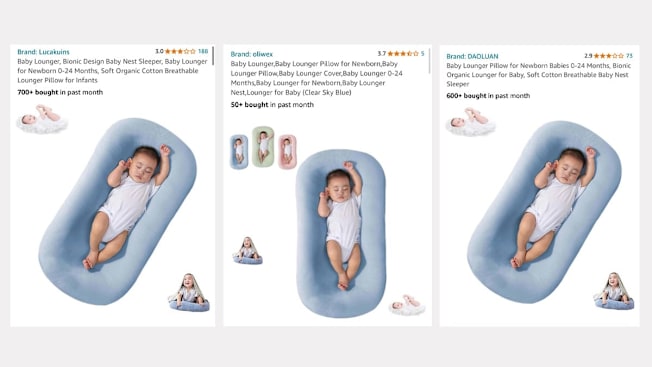
Source: Amazon Source: Amazon
So what’s going on? Part of the issue is a lack of strong oversight of third-party sellers on online retailers, including Amazon, Temu, and Walmart. Those knockoff DockATots on Amazon were offered by at least four different third-party sellers. With so many infant products available online through third-party sellers, it’s easy for parents to purchase potentially unsafe products.
“All too often, we see baby products sold online that contradict clear safe sleep guidance from experts and confuse parents on what is safe and what is not,” says Oriene Shin, manager of safety policy at Consumer Reports. “Online marketplaces need to step up and put stronger safeguards in place to protect babies. Parents deserve safe products, and anything that fails to meet those expectations should not be sold.”
Below are five products that are still quite easy to find online through third-party sellers on major e-commerce sites, in spite of numerous infant deaths that have led to widespread recalls, warnings, and rule changes regarding infant products marketed for sleep. Read on to learn more about just how widespread the problem is, and red flags and warning signs to watch for when you’re shopping online.
Baby Loungers
Infant loungers have been marketed as cozy spots to put a baby down while they’re awake and a caregiver is nearby. But parents should know that in October 2024, after multiple recalls, at least 79 deaths, and 124 injuries associated with infant support cushions, the Consumer Product Safety Commission unanimously passed a sweeping new safety rule that will require most of the baby loungers currently on the market to be redesigned for safety.
Baby loungers put infants at elevated risk of suffocation, entrapment, or falls (such as when an infant in a lounger is placed on an elevated surface like a counter, chair, bed, or sofa). Numerous infant deaths have occurred because of suffocation while using loungers like the Boppy lounger. Other loungers like these currently available on Amazon and other sites show babies sleeping in a lounger, sleeping on their stomach in a lounger, or sleeping in the lounger inside a crib, contrary to safe sleep guidelines, and contrary to how these products are allowed to be marketed.
The new regulations on baby loungers and other infant support cushions don’t go into effect until the spring of 2025—until then, baby loungers remain easy to find everywhere online, with no messaging to parents or caregivers about the potential risks of these products.
Red Flags for Parents
- Oval or C-shaped pillows that are advertised as giving babies a better sleep position
- Product images showing babies sleeping on baby loungers or sleeping in unsafe positions
- Design features like restraints, straps, or wraps that may suggest that it’s safe to leave a baby unattended with the product
Sleep Positioners and Wedges
Safe sleep guidelines say that babies should sleep on a firm, flat surface. But infant sleep positioners and sleep wedges are marketed to parents as a way to relieve their baby’s reflux symptoms. Parents who are understandably desperate for sleep solutions might try propping up their baby for sleep on one of these products.
But sleep positioners have been associated with at least 10 infant deaths. The same October 2024 CPSC safety standard for infant support cushions applies to nonmedical infant sleep positioners and wedges as well—meaning that manufacturers of these products will need to redesign them in accordance with the new rules by 2025, or pull them from the market. (Sleep wedges and positioners designated as medical devices by the Food and Drug Administration would be exempt from the new rules.)
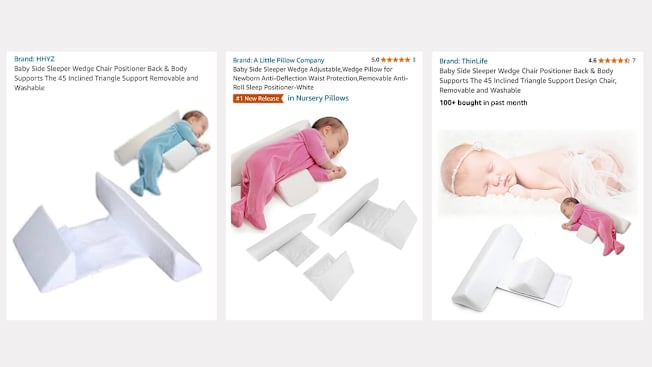
Source: Amazon Source: Amazon
Sleep positioners vary in size, appearance, and purpose. But any product that positions a baby on an incline or brings a soft, pillow-like surface into a baby’s sleep environment can put them in danger, like this infant sleep positioner, this baby side sleeper, or this "soothing pillow," all of which show photos of babies sleeping in unsafe positions. On Amazon and Walmart, numerous baby wedge pillows specifically recommend that babies sleep propped in various positions.
Red Flags for Parents
- Any soft, pillowlike product marketed for infant sleep
- Products meant to position babies on their sides, an unsafe sleep position for infants
- Wedges that incline a baby during sleep, either by placing the baby on them or by placing the wedge under a mattress or bassinet pad
Inclined Sleepers
The Fisher Price Rock ’n Play inclined sleeper was marketed to parents as a lifesaver for infant sleep—when, in fact, it was the opposite. After approximately 100 infant deaths were associated with the product, Congress passed the Safe Sleep for Babies Act in 2022. In 2023, the CPSC finalized rules that would ban companies from “the manufacture for sale, distribution, or importation into the United States” of inclined infant sleepers.
The ban on inclined sleepers for infants is due to a number of serious hazards, including the risk of asphyxiation or positional asphyxiation. While sleeping at an incline, a baby’s neck can struggle to keep its head elevated enough to breathe properly, among other risks. A recent study found inclined sleepers led to a fivefold greater risk of SUID.
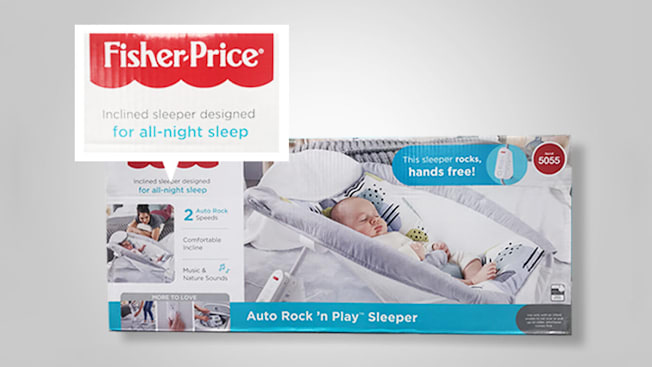
Photo: Consumer Reports Photo: Consumer Reports
While the Rock ’n Play is no longer for sale on retail sites, it has been a slow process to remove copycat products and secondhand inclined sleepers from the market. An additional eight infant fatalities related to the Rock ’n Play have been noted since the initial recall in 2019, and in 2023, the CPSC chair issued a letter to Meta/Facebook CEO Mark Zuckerberg, stating that they’d had to request removals of close to 4,000 secondhand listings on the platform to protect parents.
Red Flags for Parents
- Elevated or inclined products marketed or promoted with the words “rest,” “sleep,” or “naps”
- Inclined swings, bouncers, or rockers that manufacturers claim rock the baby to sleep
- Images of sleeping babies or design details that connote nighttime or sleep
Weighted Sleep Sacks
Initially developed for sensory therapy, weighted blankets have become increasingly popular for adults. However, weighted sleep sacks, weighted blankets, and weighted toys marketed to parents as a way to calm a fussy baby and encourage sleep are not safe.
The CPSC advises caregivers not to use weighted sleep sacks or weighted swaddles, citing both the Centers for Disease Control and Prevention and the National Institutes of Health. In April 2024, CPSC Commissioner Richard Trumka issued a call to major retailers to stop selling weighted infant products because of the potential for lowered oxygen levels in infants during use. He cited a letter from the American Academy of Pediatrics that these lower levels can affect the growing brain over time. Weighted sleep sacks may also cause babies to sleep longer and more deeply, meaning they may not wake to reposition themselves when they roll into a dangerous position.
But weighted sleep sacks are still widely available and marketed to sleep-deprived parents as a solution for infant sleep. In August 2024, Consumer Reports commended the introduction of the bill Safeguarding Infants from Dangerous Sleep.
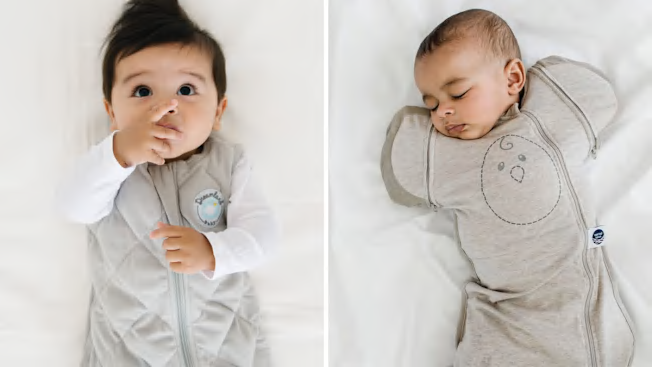
Source: Dreamland, Nested Bean Source: Dreamland, Nested Bean
Not everyone agrees with the potential ban on weighted sleep products, however, and the CPSC’s move has sparked several legal actions. The New Civil Liberties Alliance, a nonprofit “public interest litigation” group, plans to sue the CPSC. Dreamland CEO Tara Williams, a client of the NCLA, says she worked with sleep experts and doctors to develop and ensure the safety of her company’s weighted infant sleep sacks and blankets, that the studies cited in defense of the ban aren’t enough, and that the CPSC overstepped in demanding these products be removed from shelves. Meanwhile, another weighted sleep sack manufacturer, Nested Bean, has been sued by a parent who alleges the company knew the sacks were unsafe for infant sleep and sold them anyway.
Red Flags for Parents
- Sleep sacks or products labeled “weighted”
- Infant sleep products that are promoted as having “gentle pressure” or any pressure at all
- Weighted products that are advertised as “safe” for babies
Crib Bumpers
Decades ago, an essential baby shower gift was a soft and fluffy crib bumper, often made from thick, padded comforter material. The idea was that crib bumpers would prevent babies from accidentally getting an arm or leg stuck in their crib slats. But crib bumpers had unintended and tragic consequences. According to the CPSC, crib bumpers were present in the sleep environment for over 100 infant deaths and associated with an additional 282 nonfatal incidents between 1990 and 2016.
In 2017, the CPSC issued a statement about the risks of strangulation, suffocation, and other dangers from crib bumpers. Congress went on to ban padded crib bumpers in 2022, spelling the end of the road for this product—or so people thought. But companies continue to manufacture and sell them, such as a China-based product recalled in 2023. Numerous similar options are still available on Amazon, and crib bumpers sold on Temu by a third-party seller were recalled in November 2024.
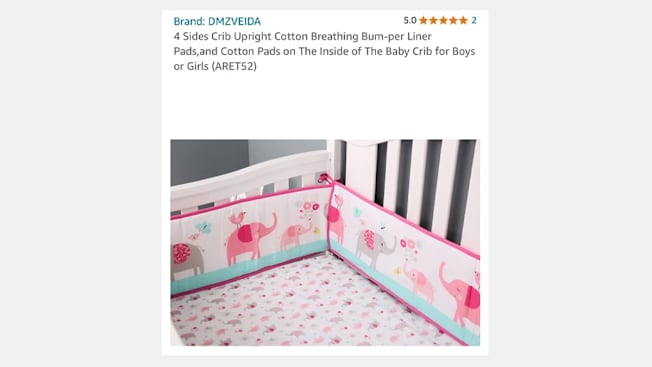
Source: Amazon Source: Amazon
Other crib bumpers available on retail sites like Walmart are “mesh” options, which were not included in the federal bumper ban. While mesh bumpers or mesh crib liners aren’t subject to the same ban as padded crib bumpers, other CPSC safety rules for manufacturers may still apply, including regulations on materials, small parts, and labels.
Some sellers use the phrase “anti bumper” in the item description or name of their product, such as this mesh bumper, which is also available as part of a crib bedding set from a third-party seller on Walmart’s website. (Worth noting: The blanket draped over the crib rail would also constitute a hazard if used for infant sleep.) Other product marketing language includes “crib protectors,” which look similar to crib bumpers and are made from cotton. Even though the product descriptions use the term “baby safe,” they may be referencing the chemicals in the product rather than whether or not they’re actually safe for sleep.
The American Academy of Pediatrics says that no bumpers are necessary for safe sleep, because crib manufacturers have redesigned their products to ensure babies won’t get stuck or otherwise hurt.
Red Flags for Parents
- Any padding or fabric wrapping around the crib slats
- Bedding sets that include crib padding or bumpers
- Bumpers claimed to be “safe” or necessary to prevent babies’ limbs from going through crib slats
Companies Respond
We contacted to Walmart, Amazon, Go Garden Store, Orbisify, and Le Caneton, where we found unsafe products for infant sleep.
Walmart immediately removed the items from the company’s site, saying they were listed by third-party sellers and didn’t meet their policies and high standards. “Items that are identified to not meet these standards or requirements will be promptly removed from the website and remain blocked,” Walmart said. “We are adjusting our controls to help prevent similar items from being listed on our site.” We subsequently found more examples of third-party sellers on Walmart.com showing unsafe infant sleep products, and will follow up with the company.
Amazon was in the process of investigating and taking down products we cited and “taking action against bad actors,” according to a company spokesperson, who added that Amazon continuously monitors its store, “and if we discover a product was undetected by our automated checks, we address the issue immediately and refine our controls.”
Le Caneton, a company based outside of the U.S. that sells baby products globally, including in the U.S., said it was not aware of a ban on crib bumpers and would now “take all the necessary measures to prevent US customers from being able to buy the bumpers from our website.”
Orbisify told CR it sells products in the U.S., Canada, New Zealand, and Australia and will stop selling products like the sleep positioners we called out when they are no longer able to be sold in the U.S. The platform still sells crib bumpers outside of the U.S. and said it would stop by the end of the year.
Go Garden Store did not respond to a request for comment.
What Parents Should Know
To my confused friend trying to safely shop for her baby, and all the other parents doing the same, a word to the wise: Proceed with caution. Shopping online can be confusing with so many baby products being sold through third-party sellers. Until digital marketplaces can address every single hazard that puts babies at risk, parents have to do what they do best—protect their own children.
Editor’s Note: The article has been updated to reflect additional information about the Consumer Product Safety Commission’s and the American Academy of Pediatrics’ positions on weighted sleep products.
